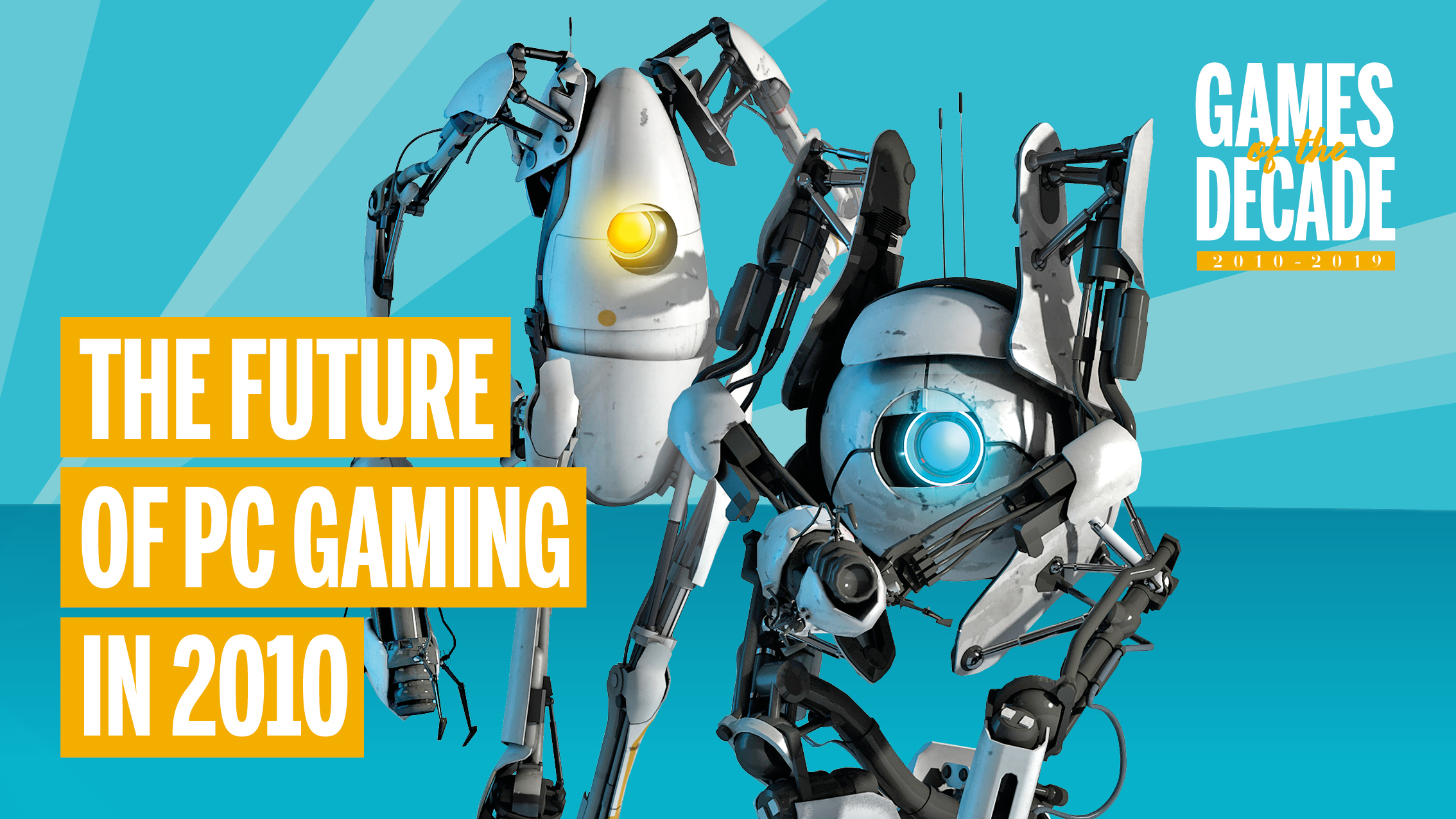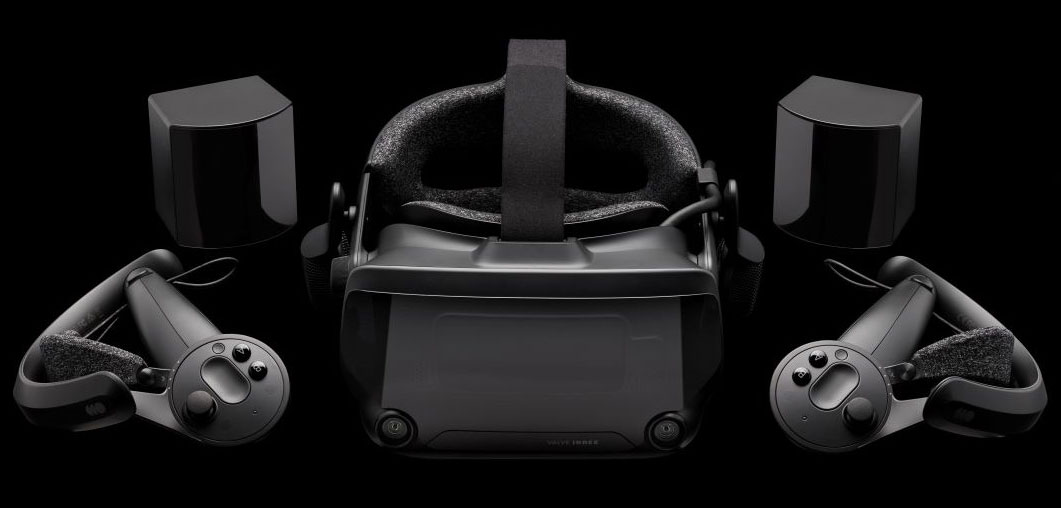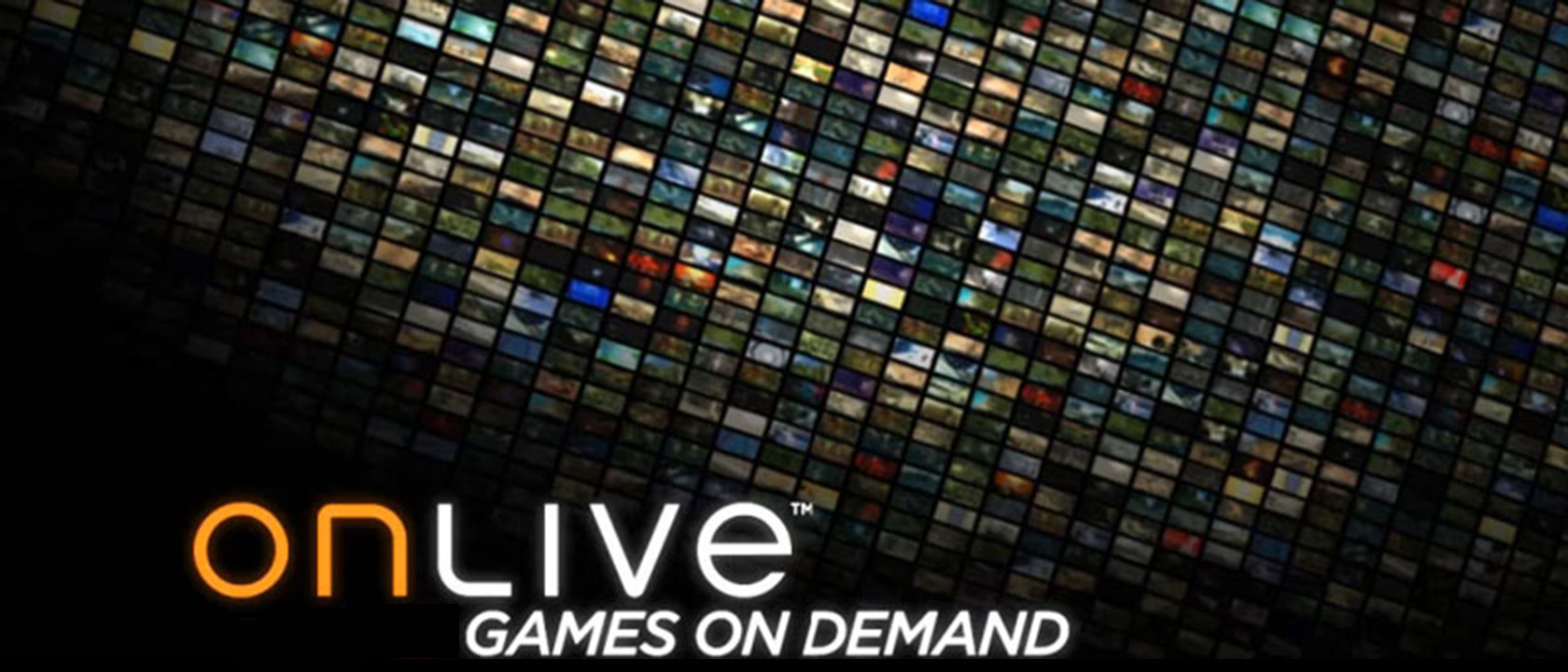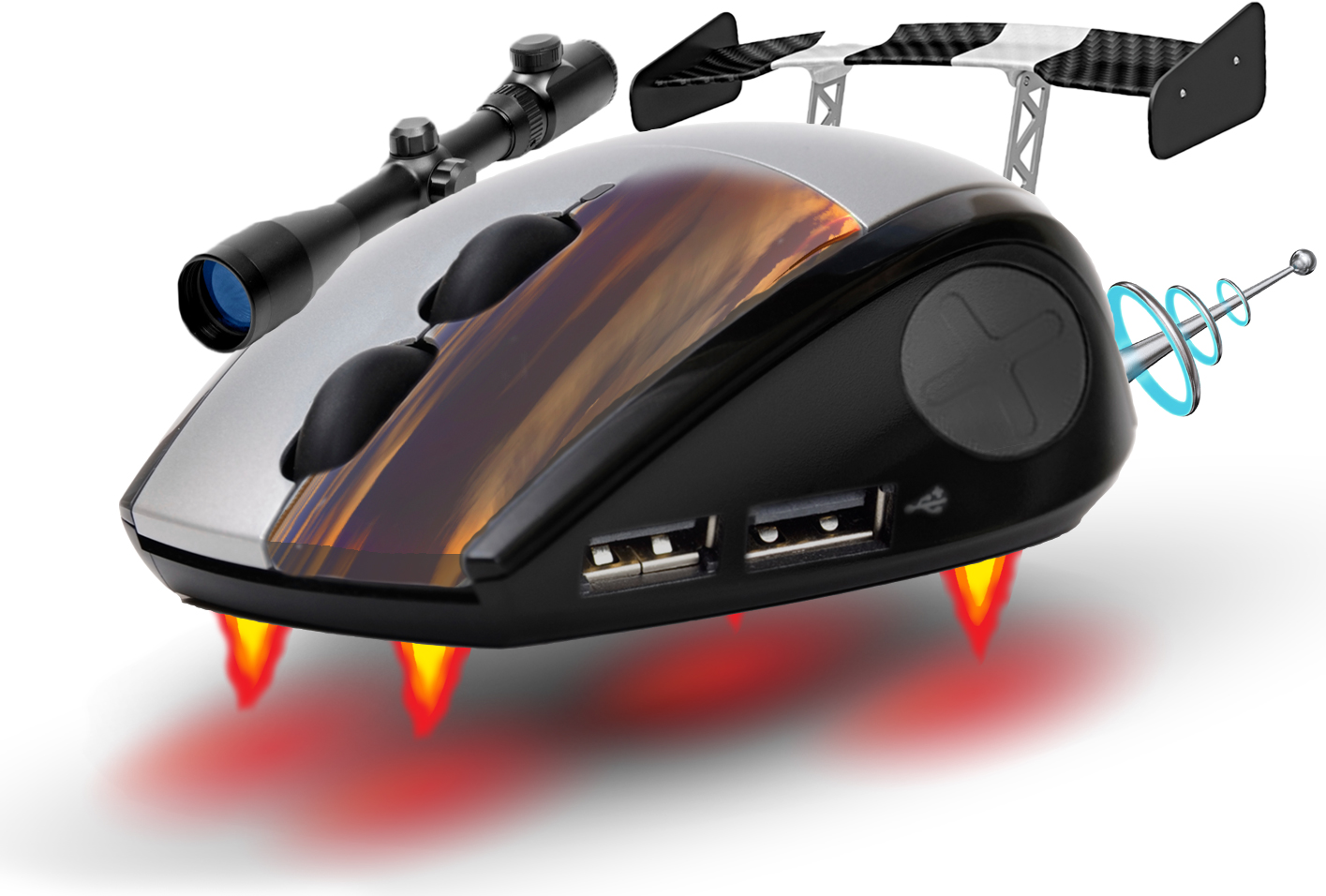What people in 2010 thought gaming would be like in 2020
An augmented reality revolution, 3D monitors for all, and other predictions about the present day from 10 years ago.

The great thing about making bold predictions is that hardly anyone ever checks to see if you were right. Futurist Ray Kurzweil said in December 2009 that by 2020 "our glasses will beam images directly to our retinas" and "be able to take over our entire visual field of view, putting us in a three-dimensional full immersion virtual reality environment." VR is a thing, so that's partial credit, but my glasses are still just normal glasses that help me see. Sorry, Ray.
You're bound to miss a few when you take big swings. Unlike Kurzweil, I do not think widespread anti-aging gene therapy is imminent, but I did recently make some bold guesses as to what gaming would look like if Google Stadia and streaming actually took over. Please do not make fun of my predictions in December 2029.
Adventurous, often incorrect predictions at the end of a 10-year span are inevitable—it's fun to get the imagination going, and the end of a decade provides a tidy milestone from which to look backwards and forwards. We'll be making our own ill-advised predictions for 2030 soon. Before that, let's take a look back at what people in 2009 and 2010 thought gaming would be like here at the end of the decade. They got a few things right, and some things they got very, very wrong.
Nailed it: Steven Spielberg predicts VR will be a thing

When the virtual reality systems of '80s and '90s sci-fi movies failed to materialize in the new millennium—which instead brought us Wii Music—the idea of VR existing in our time began to seem frivolous and unrealistic. Here's PC World in 2009 laughing off Steven Spielberg's prediction that VR would make a comeback: "Apparently Spielberg has finally read William Gibson's Neuromancer, seen Jeff Fahey wig out in The Lawnmower Man, and stuck his head in the red and black migraine-scape that was Nintendo's Virtual Boy. Somewhere along the line I assume he rented The Matrix trilogy, too."
But Spielberg was almost completely right. This is what he said: "I really think virtual reality, which experimentally came and went in the eighties, is going to be redeveloped, just like 3D is being redeveloped today, and that's going to be the new platform for our gaming future."
Whether or not VR is "the new platform for our gaming future" is yet to be seen, but here we are approaching 2020 and Valve has not only made its own VR headset, but also announced that the next Half-Life game, Half-Life: Alyx, will be a VR exclusive. I give Spielberg an A- on that one.
Hahaha, no: 3D displays are the future

An analyst told TechRadar in 2010 that it's "safe to say that most games and all AAA games will be authored in 3D by 2020." It was not safe to say that. I haven't heard anything about 3D support for years, which answers the question our friends at TechRadar posed at the time: "But will [3D] really take off or will we look back in ten years' time and identify it as yet another passing tech trend?"
Keep up to date with the most important stories and the best deals, as picked by the PC Gamer team.
3D TVs and 3D monitors were a big deal back then, so it makes sense that they were being hyped. Display manufacturers needed a new bullet point to push products, and 3D movies like Avatar provided the hook. But while 3D theater screenings persisted, it turned out that not many people cared about replicating that experience at home.
Close, but not quite: Kinect is going to be revolutionary
Project Natal, which was later renamed Kinect, was Microsoft's controllerless motion detection system for the Xbox 360. After it was revealed at E3 2009, Time magazine named it one of the best inventions of the year, and multiple websites referred to Natal as "revolutionary."
Peter Molyneux's Milo demo seemed creepy more than revolutionary to me, but at the time, everyone was chasing motion control (remember PlayStation Move?) and I couldn't help but wonder if it really was the next big thing. Not exactly. Kinect got a bunch of games—Kinect Adventures!, Kinectimals, Kinect: Disneyland Adventures, every Just Dance through to present day—but it'd be an exaggeration to say it revolutionized gaming.
I'm going to give this prediction partial credit though, because motion tracking did turn out to be a big deal. The most important part of convincing VR isn't screen resolution, but how accurately it tracks movement, and major advances have been made in that respect. While VR hasn't exploded into mainstream popularity just yet, it feels like it has a greater chance at being a foundational shift in gaming than Just Dance. (Not that there's anything wrong with Just Dance.)
Wrong: Actually, AR will be the thing

AR is a thing, but not the thing. To avoid embarrassing random people on Twitter for 10-year-old takes, I won't directly link to what they said, but the sentiment was that VR would come and go, but AR would stick. So far, Hololens, Magic Leap, and other AR systems haven't blown us away.
Right now, VR provides a more interesting gaming experience, and in general I don't understand why anyone thought projecting 3D images into my boring bedroom would be more interesting than completely replacing my boring bedroom with something cool. Pokemon Go was a hit, but it didn't involve fancy glasses.
There's potential in AR, but I'm not convinced it'll be as interesting for gaming as has been suggested, or that the blowback caused by Google Glass won't repeat. We all know we're under constant surveillance, but I'd prefer not to walk into public restrooms full of cameras if I can avoid it.
If people get used to that—and we did get used to throwing information about ourselves all over the internet, so it's possible—then I think Kurzweil may have been right, just premature in his prediction that AR and VR will be handled by the same 'glasses.' I'd tack another 20 years onto that idea.
Extremely wrong: Intel predicts we'll all be controlling computers with our brains

According to Computerworld, Intel predicted that by 2020, it'd be normal to use brain implants to control our PCs and TVs. Brain control technology exists—see Emotiv, for instance—but even at the time I would've laughed this prediction off.
To be fair, the only source for the story is Computerworld, and none of the direct quotes state that brain implants would be commonplace in 2020. What was said was that implants are "well within the scope of possibility," and that "eventually people may be willing to be more committed ... to brain implants." That remains true, and experimental implants can already help people with paralysis, though I'm skeptical that even by 2030 there will be any widespread adoption of brain-controlled PCs.
Personally, I'm cool with Intel leaving my brain the hell alone for now.
Also wrong: OnLive is the future of gaming

Back in 2009, game streaming was an exciting novelty, and possibly the future of gaming for some observers. Denis Dyack believed streaming would change everything, though he tempered expectations by saying that it could take 20 years for the tech to catch on, and that "it might all go horribly" the first time around. That it did.
OnLive wasn't the future of anything except for some Sony patent acquisitions. The early game streaming service didn't make any money and was a total catastrophe. Now, ten years after OnLive blew people away at GDC 2009, the exact same 'future of gaming' prediction is being put forth about Google Stadia.
That streaming is the future hasn't been proven or disproven—Dyack still has 10 years to be right about it—but for now, Google can't even competently explain why anyone should be interested in Stadia, and the most popular game in the world, Fortnite, can already run on any device without streaming.
High-end graphics—which Stadia doesn't even offer currently—just aren't the selling point they used to be. Instantly playing a game with no download is cool, but if you have an internet connection good enough to work with Stadia, you can also download games relatively quickly. I won't count out streaming entirely, but 10 years after OnLive was supposed to revolutionize the games industry, the rise of streaming only feels slightly more possible.
Definitely not the case: Mind reading, body-hosts, and 'programmable matter'

In 2009, when asked by IGN what gaming would be like in 10 years, Ubisoft Canadian Studios CEO Yannis Mallat said: "I just do not want to get on that turf. It's a trick to make me look like a fool in ten years." As WarGames taught us, sometimes the only winning move is not to play.
In March of 2009, Gamasutra ran a "Games of 2020" writing contest which invited readers to imagine what 10 years of technological and cultural development might produce. The entrants had fun with it, imagining outlandish things such as an augmented reality game that observes and incorporates real events in your life and 'programmable matter' that shape shifts into magic scrolls. Also, this:
"The person who wears the Body Suit thus becomes the body-host. The game is controlled by the touch of the player (the person who touches the body-host) and muscle reaction and external response of the playee (the person who is the body-host). The interactions range from a slight touch to a deep tissue massage. It's relaxing; it's beautiful; it's intimate."
Ah, who can resist that classic pick up line, "Want to be my body-host?"
It's a fun read, less to see how people thought technology would develop, and more to see what kind of games they were dreaming of. In many cases, the games described were seamlessly integrated into their lives. Several entrants predicted that AR games would liven up chores like vacuuming and grocery shopping—'gamification' was just becoming a buzzword at the time—and one correctly predicted that popular games would be available on any platform, from mobile to PC, so you never had to stop playing.
Take these predictions down a few notches, and they weren't all wrong. The death of the singleplayer game was highly exaggerated, but big publishers did spend the past decade chasing always-online shared worlds that never sleep. Weekly challenges, battle passes, and endless endgames are adding daily gaming tasks to daily life. Mobile ports and crossplay mean a family dinner is no reason to stop playing Fortnite, and accruing likes on Twitter and upvotes on Reddit for gifs and quips and jabs are the metagames to every game.
We may not have AR glasses displaying quest markers over our daily commutes, but capturing our attention wherever we are is doubtlessly part of the strategy—which is where I think so many of the AR evangelists came from. VR is isolating, but AR can go anywhere, and that's much more attractive to marketers. Time will tell if they get their dream of turning all of life into a videogame.

Tyler grew up in Silicon Valley during the '80s and '90s, playing games like Zork and Arkanoid on early PCs. He was later captivated by Myst, SimCity, Civilization, Command & Conquer, all the shooters they call "boomer shooters" now, and PS1 classic Bushido Blade (that's right: he had Bleem!). Tyler joined PC Gamer in 2011, and today he's focused on the site's news coverage. His hobbies include amateur boxing and adding to his 1,200-plus hours in Rocket League.


